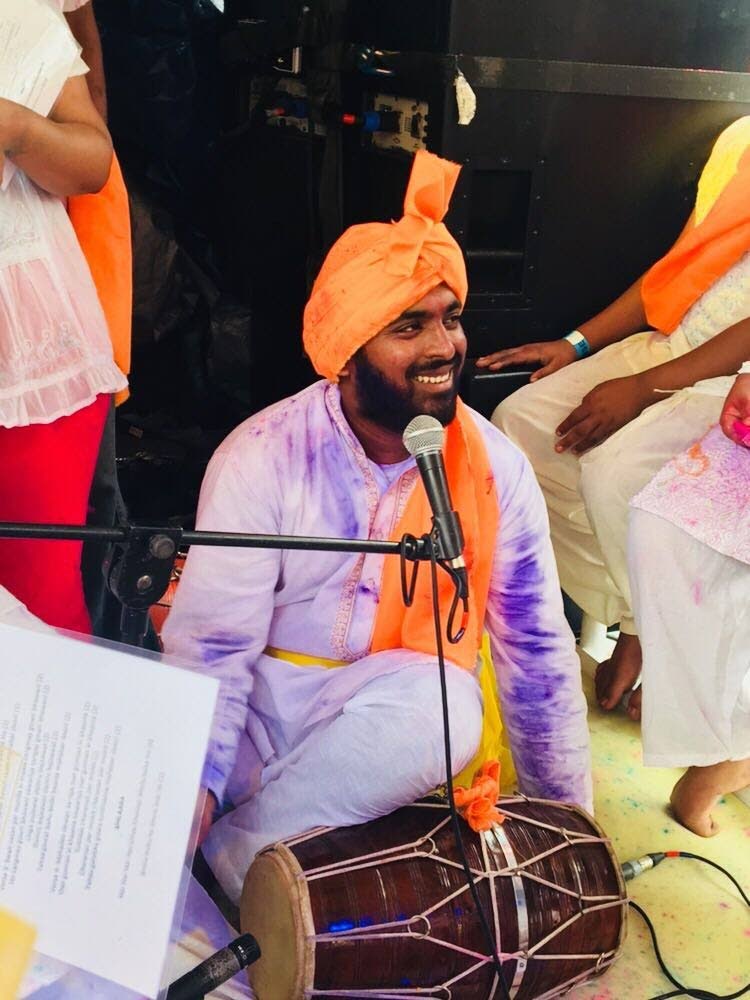Primary Schools’ Chowtal Sammelan finals on Saturday

BAVINA SOOKDEO
The finals of the Primary Schools’ Chowtal Sammelan, hosted by the Sanatan Dharma Maha Sabha (SDMS) is being held at the auditorium of the Lakshmi Girls Hindu College, St Augustine on March 2 from 9 am.
Forty-three primary schools will be participating in the competition, while five secondary schools will make guest appearances. Schools will be judged on chowtal singing,
jhal(cymbal) playing and drumming.
Chowtal is a fast-paced folk song traditionally performed during the Phagwa/Holi season.
Vasant Panchami, celebrated on February 13, signified the onset of spring, known as Phagun, but more commonly referred to as the chowtal season or Phagwa season in Trinidad. Vasant Panchami falls on the fifth day, or
Panchami, of the bright fortnight of the lunar month of Magha, typically occurring from January to February.
It is also recognised as the birthday of Goddess Saraswati, the Hindu deity symbolising knowledge, music, and the creative arts. On this auspicious day, Saraswati puja is conducted at temples, homes, and schools, symbolising the vibrant colours and festive spirit associated with the arrival of spring, represented by chowtal singing.
According to Ravi Jagroop, a chowtal enthusiast with over 20 years of experience, there exist various styles of chowtal songs, such as
jatti, lej, and jhuma, each distinguished by unique variations in melody and rhythm.
Jagroop explained that the tradition of chowtal traces back to the arrival of East Indian immigrants in Trinidad, who initially sang it in secluded places due to cultural restrictions. “Despite the restrictions, they upheld their cultural practices using improvised instruments like the
dhantal, a long steel rod-based percussion instrument. "Over time societal constraints eased and chowtal singing became a communal activity, with performers visiting households to share their folk songs, and so chowtal remained and grew into what it is today.”
On Vasant Panchami, the planting of a castor oil tree symbolises the ritual of "planting the Holika."
Chowtal singing continues for 40 days, during which unmarried boys fasting for the occasion place grass on the tree three times daily, thereby "building the Holika."
“On the 40th day, known as Holika Dahan, the community gathers to complete the ritual by adding additional grass or branches to the Holika before lighting it at a specific time determined by a pundit,” Jagroop said.
“This ceremony, accompanied by singing and puja, signifies the culmination of the chowtal season.”
According to Hindu scripture, Holika, sister of the demon king Hiranyakashyap, possessed a special boon (gift) of an
orhni (shawl) that rendered her immune to fire. Hiranyakashyap demanded worship from all in his kingdom, but his son Prahlad, a devout follower of Lord Naarayana (Vishnu), refused to comply. Despite numerous attempts by his enraged father to eliminate him, Prahlad was always saved by Lord Vishnu.
In a desperate bid to get rid of Prahlad, Hiranyakashyap invoked Holika's boon and instructed her to enter a blazing fire with Prahlad on her lap. However, unbeknownst to Holika, her immunity to fire only applied when she entered alone. Consequently, while Holika perished in the flames, Prahlad emerged unscathed, playing amidst the ashes, protected by the divine grace of Lord Vishnu.
“Therefore, the burning of Holika and the subsequent rolling and playing in its ashes symbolise the re-enactment of this event,” Jagroop explained. Following this ritual, participants shower, dress up, and are adorned with abeer (colourful powder) as they celebrate, commemorating Prahlad and the victory of good over evil. Vibrantly sung chowtal songs recount these tales and numerous other epics from Hindu scripture.
According to the SDMS Hindu calendar, Phagwa begins on March 24.


Comments
"Primary Schools’ Chowtal Sammelan finals on Saturday"